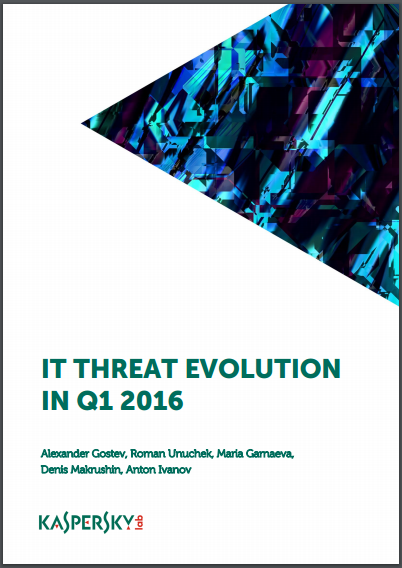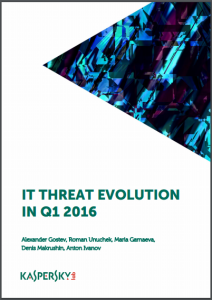Ransomware has overtaken advanced persistent threat network attacks as the most frequent cyber threat, according to security firm Kaspersky Lab, and it doesn’t appear to be slowing down as authorities have had a hard time combating the viruses.
A recent Kaspersky report revealed that there were 2,900 new ransomware modifications detected between January and March of 2016, a 14 percent increase over the previous quarter. New products, of course, mean new users; in this case whether they wanted to be or not. Along with the rise in ransomware variations have been a rise in attacks as well, which were up 30 percent since the last quarter.
Authorities, already understaffed and underprepared in the fight against cyber-crime, have struggled to combat the attacks, which are made even more difficult to trace and remove due to the increasingly evolving nature of malware and hacker use of bitcoin as their preferred payment form. A joint statement from the United States and Canada in early 2016 highlighted the dangers of ransomware, which in extreme cases can completely eliminate access to an operating system and hard drive.
Yet for all the innovation and changes hackers have made to get into citizen’s electronics, their method of entry hasn’t much evolved. Kaspersky’s report points out that each of the three most popular forms of ransomware during the first quarter, Teslacrypt (58.4 percent), CTB-Locker (23.5 percent) and Cryptowall (3.4 percent) gain access to user information through the same entry points as most earlier malware iterations; infected websites and email attachments.
That the methods to gain access haven’t evolved as fast as the software gives hope to the idea that perhaps the best way to counter ransomware is to simply better educate users on best practices to avoid becoming infected. Yet, even if their system is hacked, the report points out that often users can still combat the virus without losing their information or paying the ransom. Most, however are unaware that this is an option, or simply too stunned to do anything about it.

